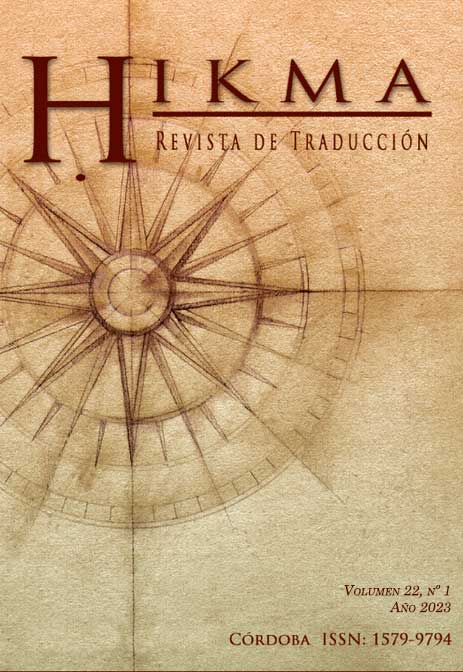Towards the acquisition of strategic competence in translator training Stepping into the translator trainees’ shoes (II)
Main Article Content
Abstract
Unravelling the complex process of acquiring Translator Competence (TC) is a considerable challenge. Whilst TC has been considered fundamental to translator training, research, and training have often been limited to theoretical reflections, without including empirical input. In this proposal, we will try to fill a gap in the empirical studies that have been performed to date on TC and the analysis of its acquisition in real teaching practice. We offer the reader an in-depth review of key issues for the training of translators before presenting the empirical study. In the first part, we place the reader in the context in which the study is framed, dealing with basic concepts such as TC. This paper summarizes essential ideas before exploring the question of TC acquisition, and particularly into strategic competence (SC). In the second part, we describe the quantitative and qualitative methodology of the empirical study. The longitudinal study, presented, includes a group of 37 subjects, allowing greater depth in the analysis of the processes of the acquisition of SC. Finally, we present our conclusions. Our results shed light on key issues for the development of theory and practice to facilitate advances in the training of translators.
Downloads
Article Details

This work is licensed under a Creative Commons Attribution-NonCommercial-ShareAlike 4.0 International License.
Authors who publish with this journal agree to the following terms:
1. Authors retain copyright and grant the journal right of first publication with the work simultaneously licensed under a Creative Commons Attribution License that allows others to share the work with an acknowledgement of the work's authorship and initial publication in this journal.
2. Authors are able to enter into separate, additional contractual arrangements for the non-exclusive distribution of the journal's published version of the work (e.g., post it to an institutional repository or publish it in a book), with an acknowledgement of its initial publication in this journal.
3. Authors are permitted and encouraged to post their work online (e.g., in institutional repositories or on their website) prior to and during the submission process, as it can lead to productive exchanges, as well as earlier and greater citation of published work (See The Effect of Open Access).

